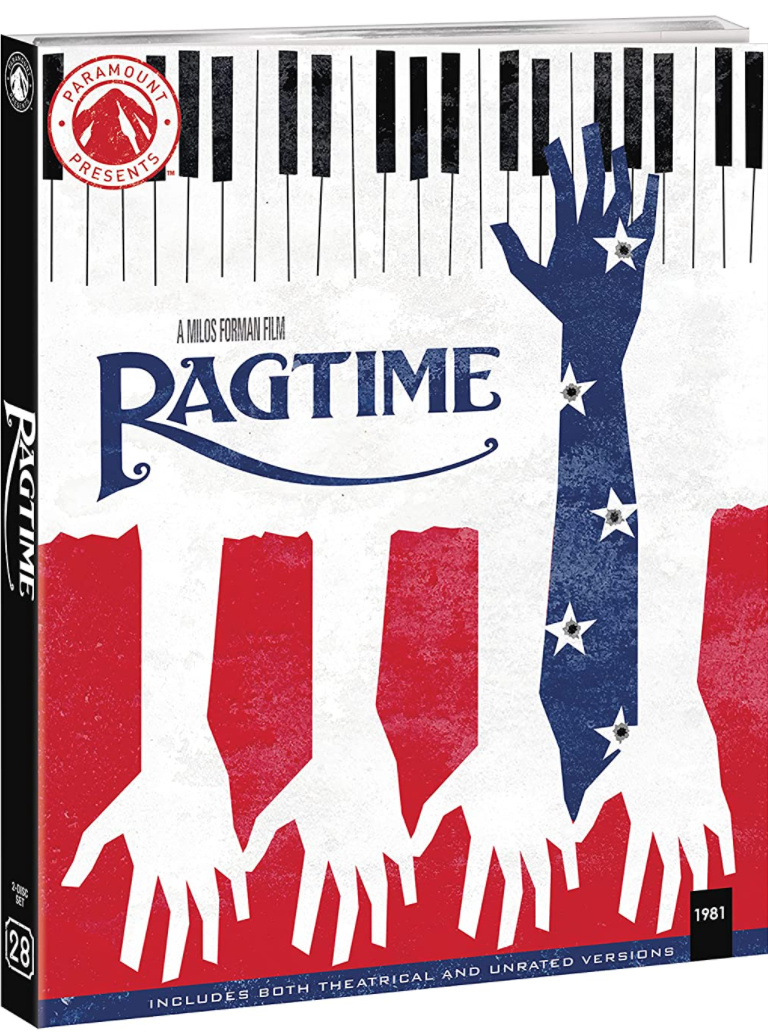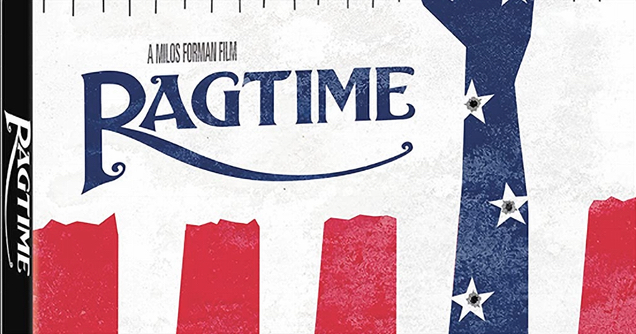I’m of two minds about Paramount Home Video’s new 4K Bluray of Milos Forman‘s Ragtime, which popped yesterday.
Why not just buy the damn thing, watch it and sort out the issues as I go along? Because I’m torn about it.
On one hand Ragtime, mainly set in the New York City area between 1905 and 1910, is a generally respected effort. Plus it seems all the more noteworthy now considering that a film of this type (released in the fall of ’81) would never be made for theatrical today.
Nobody has ever called it great or mindblowing, but some admire the devotional labor-of-love thing — the wonderful yesteryear detail, the ambitious scope, the old Model-T cars and horse-drawn wagons, the period-perfect clothing.
Plus a fair amount of work went into making Ragtime look as good as it possibly can. Plus the package includes a “directors cut workprint” that runs 174 minutes — 19 minutes longer than the original 1981 theatrical release version (i.e., 155 minutes). For me this is the biggest attraction.

Plus it offers some deleted and extended scenes. Plus a presumably engaging discussion between screenwriter Michael Weller and the esteemed screenwriter and man-about-town Larry Karaszewski, who worked with Forman on The People vs. Larry Flint. So it sounds like a decent package.
But on the other hand I know that Ragtime is an underwhelming, at times mildly irritating film. It certainly seemed that way when I caught a press screening sometime in the early fall of ’81, inside the Gulf & Western building on Columbus Circle. And no, I haven’t seen it since. I felt that as engrossing as some portions were, it didn’t feel right. It felt spotty. And it certainly didn’t catch the sweep, texture and wonderful authenticity of E.L. Doctorow’s 1975 book, the reading of which I adored.
It was great to see the 80-year-old James Cagney back in action, but I really didn’t care for some of the casting choices (especially Elizabeth McGovern as Evelyn Nesbit and the way-too-young Robert Joy as Harry K. Thaw).
And I never understood why so much attention was paid to the tragedy of Coalhouse Walker (Howard Rollins, Jr.), whose racially-provoked standoff was just one of many sagas that Doctorow passed along. Ragtime is so intently focused on this one character and his injured sense of honor that it could have been titled Ragtime: The Saga of Coalhouse Walker.
I realize that in accepting the challenge of compressing Doctorow’s fascinating cultural tapestry into a two and a-half-hour film, the efforts of Forman, Weller and the uncredited Bo Goldman were all but doomed from the start. In a perfect world Ragtime would have been produced as an eight- or ten-hour miniseries. Then it might have had a chance.
N.Y. Times critic Vincent Canby panned Ragtime for the most part. “Ragtime is a major disappointment, but it’s a lively, provocative one,” he wrote. “It takes a long, broad view of America, which most of our films see only through a keyhole.
“Like the book, the film crosscuts among four story lines that, in the book, come together in the way of a storyteller’s dream but, in the film, meet only awkwardly.”
I wrote an Us magazine profile of Howard Rollins so don’t tell me. Nice dude to chat with, but he had some personal issues, and sadly died at age 46 in the mid ’90s.
Okay, fuck it — I’ll buy the Bluray. It’s only $22 and change.

